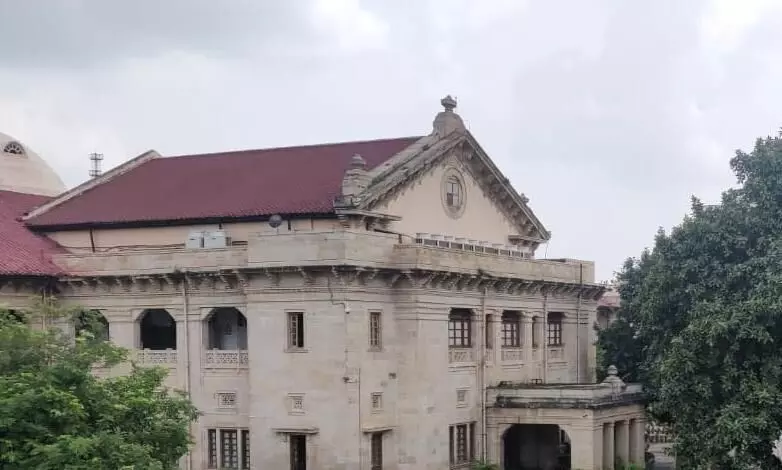
Protest Petition Must Meet Criteria U/S 2(d) CrPC; Otherwise It Cannot Be Considered As Valid Complaint U/S 200 CrPC: Allahabad HC
 |
|The Allahabad High Court reiterated that a Protest Petition should meet the criteria of a complaint under Section 2(d) of the CrPC to invite the Magistrate's cognizance under Section 190(1)(a) CrPC; otherwise, it cannot be considered a valid complaint for proceedings under Section 200 CrPC.
The Bench of Justice Nand Prabha Shukla quoted the following observations from Mukhtar Zaidi vs. State of Uttar Pradesh: "Where initially the complainant has not filed any complaint before the Magistrate under Section 200 CrPC, but, has approached the police only and where the police after investigation have filed the 'B' report, if the complainant wants to protest, he is thereby inviting the Magistrate to take cognizance under Section 190(1)(a) CrPC on a complaint. If it were to be so, the Protest Petition that he files shall have to satisfy the requirements of a complaint as defined in Section 2(d) CrPC, and that should contain facts that constitute offence, for which, the learned Magistrate is taking cognizance under Section 190(1)(a) CrPC. Instead, if it is to be simply styled as a Protest Petition without containing all those necessary particulars that a normal complaint has to contain, then, it cannot be construed as a complaint for the purpose of proceeding under Section 200 CrPC."
Counsel Raghuvansh Misra appeared for the applicant, while GA Prashant Kumar Singh appeared for the opposite party.
The applicants sought to quash the orders and proceedings related to a complaint filed against them by Smt. Manju Shukla. She alleged that the applicants attacked her sons, Gopal Shukla and Ram Shukla, near the house of village Pradhan Rekha Singh. Despite a closure report prepared after investigation, the court treated Manju Shukla's protest petition as a complaint case and summoned the applicants.
The applicants contended that the orders were passed without due consideration and to pressure for a compromise. They argued that the injuries sustained were not severe enough to warrant charges under Section 308 IPC. Citing a Supreme Court judgment, they emphasized the need for careful scrutiny before summoning accused individuals. In response, the State and Manju Shukla's counsel defended the trial court's decision, asserting that it was based on the evidence presented under Sections 200 and 202 of the Cr.P.C.
The High Court observed that if a complainant initially only approaches the police and files a 'B' report after investigation, and the complainant later protests, they essentially invite the magistrate to take cognizance under Section 190(1)(a) of the CrPC on a complaint. In such a case, the protest petition must meet the requirements of a complaint as defined in Section 2(d) of the CrPC, including containing facts that constitute the offense for which the magistrate is taking cognizance. Simply styling it as a protest petition without including these necessary details cannot be considered a complaint for the purpose of proceeding under Section 200 of the CrPC.
Relying on the case of Mahmood UI Rehmand vs Khazir Mohd. Tund, the Court noted that, "the cognizance of an offence on complaint is taken for the purpose of issuing process to the accused. Since it is a process of taking judicial notice of certain facts which constitute an offence, there has to be application of mind as to whether the allegations in the complaint, when considered along with the statement recorded or the inquiry conducted thereon, would constitute violation of law so as to call a person to appear before the criminal court. It is not a mechanical process or matter of course to set in motion the process of criminal law against a person in a serious matter."
Subsequently, it was observed that, "the mandate of provisions of Sections 200 and 202 Cr.P.C. has been clearly violated. Learned Trial Court should have carefully scrutinized the complete material to find out the truthfulness of allegations and the basis of prima facie satisfaction before summoning the applicants at the time of recording of preliminary evidence."
In light of the same, the application was allowed, and the matter was remanded.
Cause Title: Shishupal Singh And 4 Others vs State of U.P. and Another
Click here to read/download the Judgment